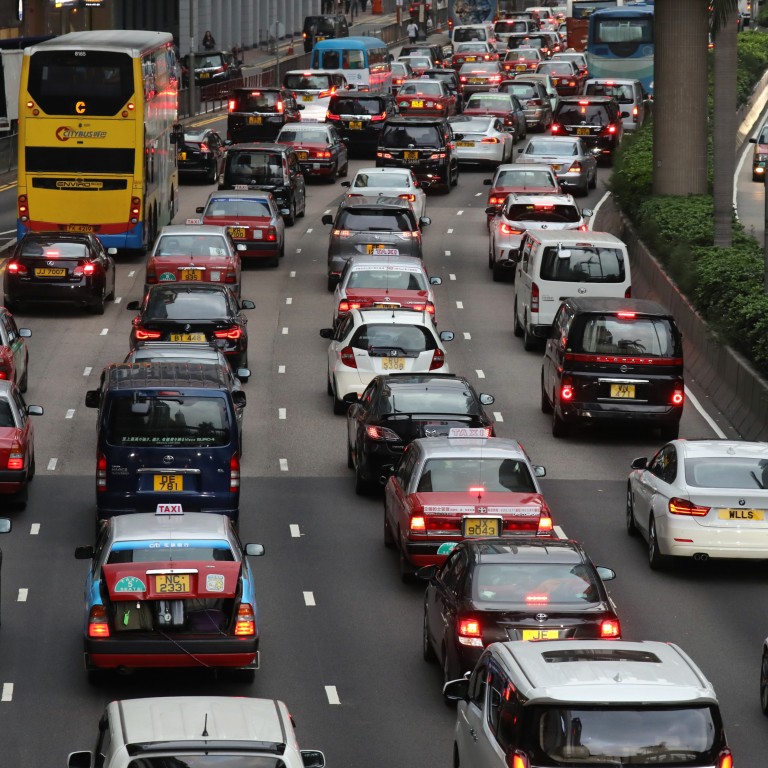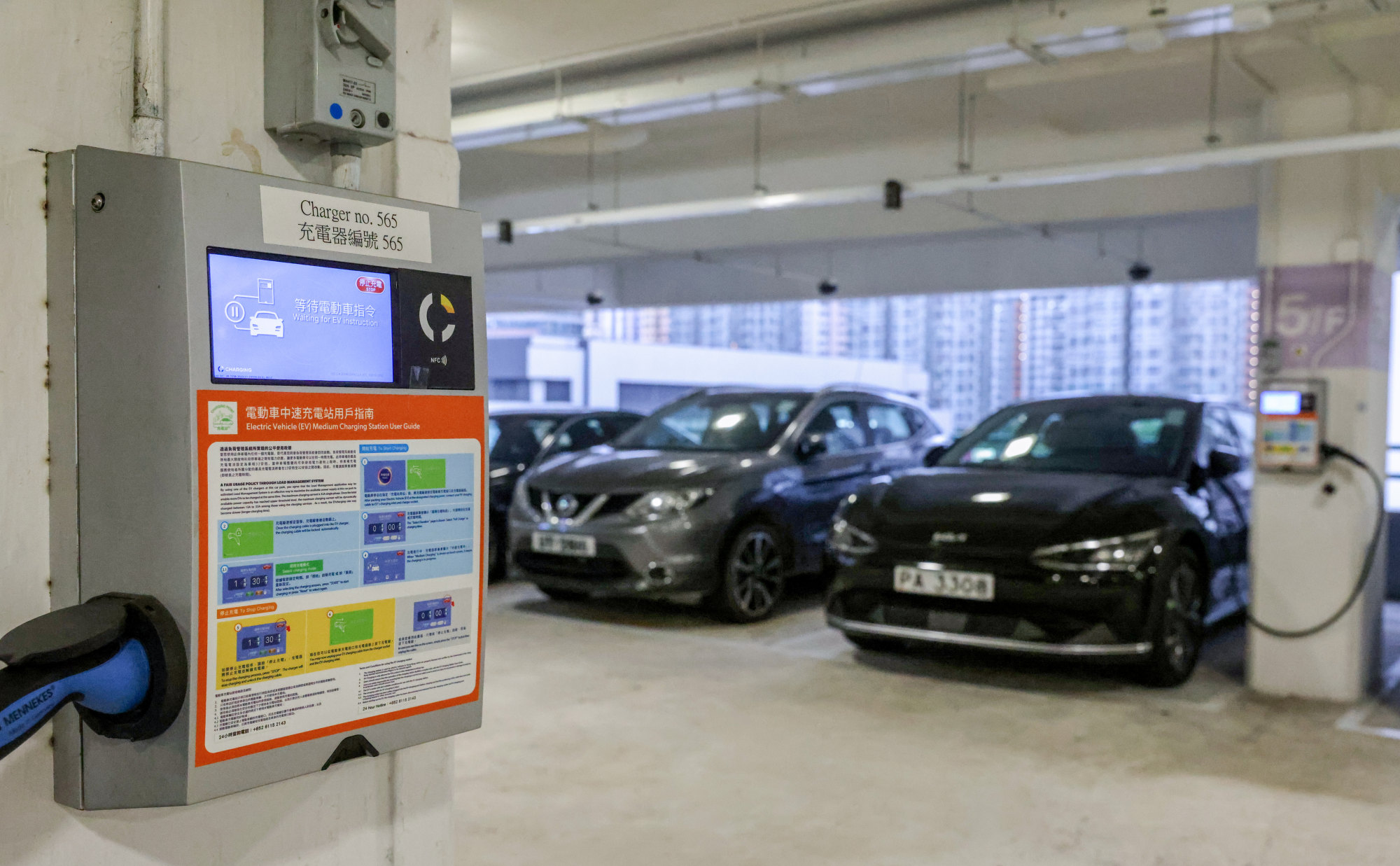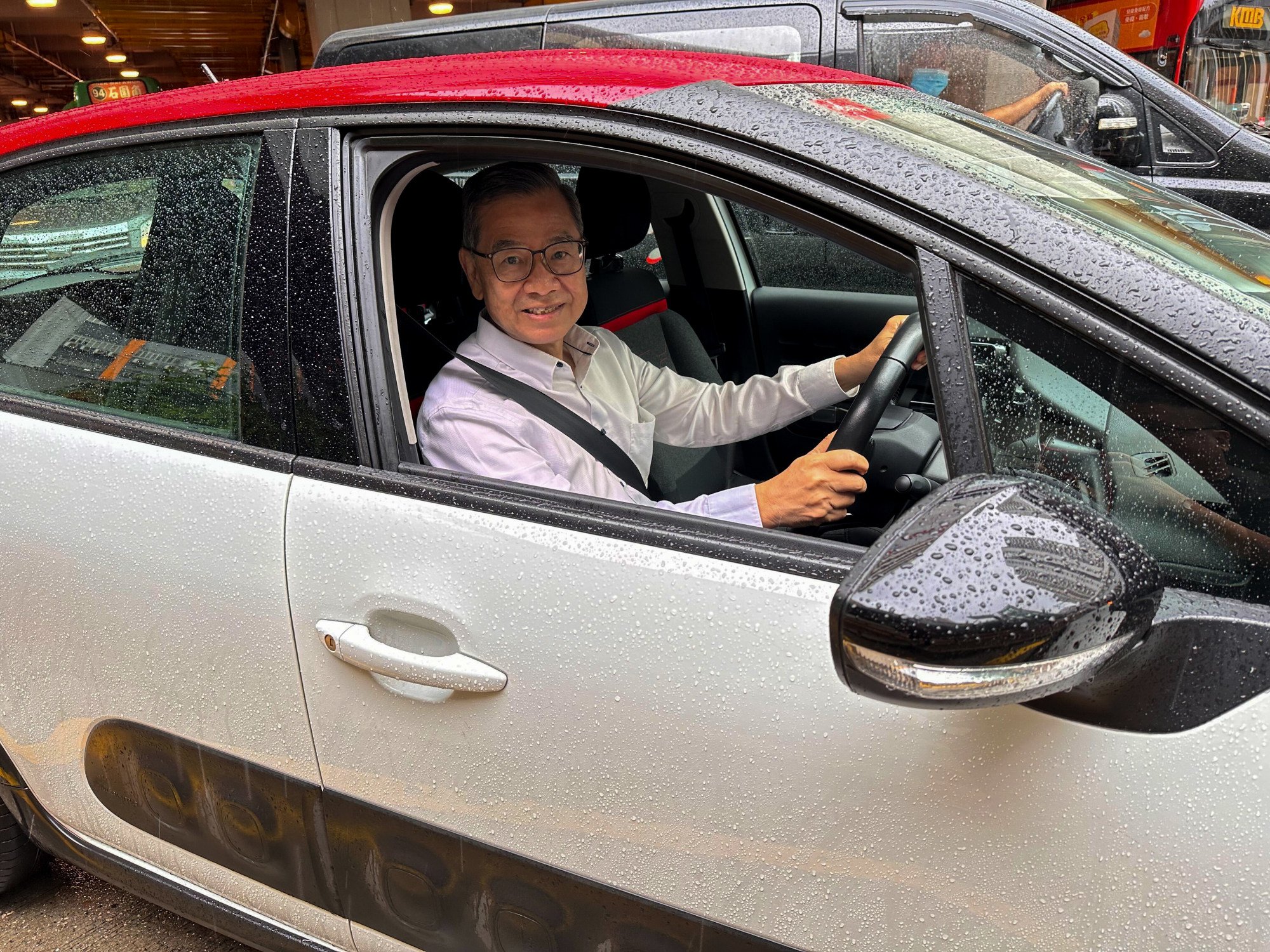
Hong Kong government must lead charge and keep electric car sales moving with incentives, campaigners say
- Wheels could come off bid to end use of traditional cars if government ends tax breaks to make electric vehicles more attractive, campaigners warn
- Head of city’s motor trade association Joseph Lau says members want gradual reduction of 10 per cent a year over next decade
They called for a one-for-one replacement scheme for buyers who changed to EVs to be extended after March 31 next year, when it is scheduled to reach the end of the road.
But the government has so far given no indication whether the scheme will be continued.
Joseph Lau, the chairman of the Motor Traders Association of Hong Kong, said the government should continue the one-for-one scheme as it had been successful in encouraging drivers to change.

He warned that ending or scaling down the scheme would stall the city’s attempt to achieve zero roadside emissions.
“The scheme has served as a driving force for the city’s wider adoption of EVs. If the government scraps it or drastically reduces the tax waiver, it will dampen buyers’ desire for switching to EVs,” he said. “It will run counter to the government’s policy aspiration about pushing for adoption of electric vehicles, which remains low at about 7 per cent.”
Buyers from 2018 enjoyed a tax break of up to HK$287,500 (US$36,750) if they ditched their internal combustion cars for electric ones.
The incentive was far bigger than the tax waiver of up to HK$97,500 for buyers of electric cars when they registered their vehicles for the first time.
The government in 2021 set out its road map to carbon neutrality by 2050 to protect the environment.
Government figures showed that electric cars accounted for 64.3 per cent of new registrations in the first eight months of the year, a major increase on the 6.3 per cent recorded in 2019.
Hong Kong tax breaks fuel big switch to electric cars, but where to charge them?
The amount of tax waivers reached HK$4.85 billion for the first eight months of 2023, compared with HK$5.3 billion last year.
First registration tax concessions were granted to 34,445 buyers between 2020 and last year, government statistics showed and almost all the buyers replaced a petrol vehicle.
Tesla was the most popular marque and accounted for 70 per cent of the total, 23,820 cars, followed by Mercedes-Benz with 3,174 and BMW with 1,750.
The total number of electric cars on the road by August was 65,935, about 7.1 per cent of vehicles on the roads.
Lau said the association had suggested a gradual reduction in the tax break by 10 per cent each year over the next decade.
He added it was a middle-of-the-road proposal designed to continue to push for the adoption of EVs and increase income for the government amid declining revenues.
Hong Kong to pull plug on free EV charging at government facilities later in year
“If the government suddenly scraps the scheme or drastically reduces the tax concessions, it will cause a market disruption to the supply and demand as buyers may rush to order EVs before the deadline,” he predicted.
“It will also disrupt car makers’ production plan and lead to a waste of research resources so we hope the authorities could gradually adjust the scheme over a longer span of time to allow a healthy development of the EV market.”
Ringo Lee Yiu-pui, the honorary life president of the Hong Kong Automobile Association, said the replacement scheme was popular with buyers and the government might fail to achieve its goal of zero roadside emissions without it.
“This is a great incentive to encourage car owners to switch to EVs. If the scheme is halted, some may continue to drive or even buy a new fossil-fuelled car. It will be a setback to the government’s efforts in pushing for wider adoption of EVs,” he warned.
“The government’s goal of phasing out fossil-fuelled private cars by 2035 may need to be postponed if the scheme is scrapped.”

Locky Law, the director of education at ChargedHK, a non-profit organisation that promotes cleaner air through the use of electric vehicles, said if the government scrapped the replacement scheme, it should introduce other incentives to encourage buyers to opt for electric cars.
Alex Hung Man-ching, the founding chairman of the Hong Kong New Emerging Technology Education Association, agreed. He said an end to the scheme would slow down the city’s adoption of EVs as consumers might be less enthusiastic about buying the vehicles.
“The scheme can create a ripple effect. With more incentives, more people will switch to EVs and more firms will be willing to invest in charging facilities which will speed up the full adoption of EVs,” he explained.
He said Hong Kong should learn from neighbouring Shenzhen, which offered charging stations at every car park.
There were 7,085 EV chargers available for public use in Hong Kong by last month, including 3,950 medium chargers and 1,092 quick chargers, about one for every 10 vehicles.
A spokeswoman for the Environment and Ecology Bureau confirmed the scheme would be adjusted at a suitable time.

